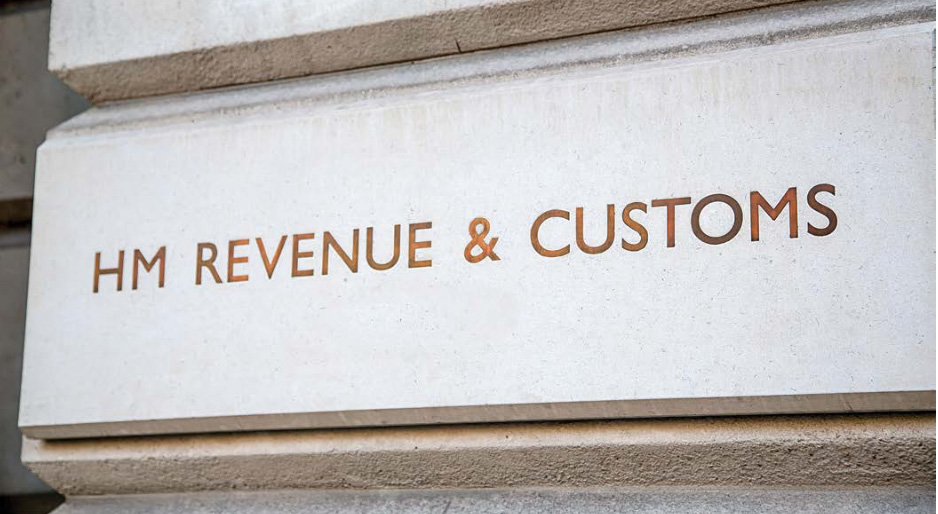On Tuesday 22nd November we sat down to discuss the recent UK Autumn Statement. Joining me were Fiona Clark, Graeme Blair and Richard Verge all from Goodman Jones.
Transcript
Janet: 0:00 I’d like to welcome everybody to this podcast, which is going to be commenting on various questions we’ve received with regard to the Autumn Statement.
Janet: 1:06 So we’ve had quite a few questions. I think the Autumn Statement confused quite a lot of people looking at the questions we’ve had come in. So I’d like to direct the first one to Graeme, which has come in saying I didn’t notice the chancellor make any further announcements about the corporation tax rate? Am I right? And assuming so, can you remind me of the rates which will apply to company profits?
Graeme: 1:35 Certainly, and it’s a very astute observation that there wasn’t an announcement, because you may recall, an announcement was made, and then that was revoked. And so effectively, we’re sticking with the original proposition from many years ago, which effectively is an increase in corporation tax rates.
The current rate is 19%. And that will go up to 25% for profits in excess of £200,000. It’s not as simple as that, because there’s a sliding scale for companies whose profits are between £50,000 and £250,000, which effectively leads to a marginal rate of 26.5%. So effectively, for every penny of profit one makes between £50,000 and £250,000 one pays tax at 26.5 pence in the pound.
The other thing that comes out of all of this is the associated company rules have been reintroduced. The associated company rules are effectively the ones that say, when one looks at the rate of tax that the company pays, one considers the profits of all its connected companies to determine the rate. And the reason we need that is to stop profit splitting, i.e. to prevent a situation where someone incorporates lots of companies, and each only makes 50,000 pounds and then they move on to trading in the next company.
So in summary, corporation tax rates are going up, as had been announced some time ago.
Janet: 3:14 Thank you, Graeme. We did have a very similar question. But a bit of a flip was I heard something about a 15% corporation tax rate. I thought the corporation tax rates were going up, which is what you’ve just said Graeme, not down. What are the future rates for companies?
Graeme: 3:34 There’s actually a bunch of rates that could apply there’s a 10% rate to companies with a very specific fact pattern. But the 15% rate is nothing to do with UK corporation tax. It’s the OECD recommended minimum rate of corporation tax around the world and the UK has signed up to that.
So effectively, what that says is irrespective of what future governments may do, we should never have a corporation tax rate less than 15%. And as I say, for lower company profits, we’ve got a 19% rate, which is, as the government reminds us, is still one of the lowest of the G10 or the G7 or the G20 Nations, I forget which.
Janet: 4:21 Okay. I’ve got one final question for you, Graeme, which is my company makes considerable R&D Tax Credit claims. What changes did the chancellor make to this relief?
Graeme: 4:34 One has to think of the changes in two areas. There’s the change to the benefit of the relief and there’s some changes to the administration around the relief. I’ll deal with them those two orders.
So what the announcements effectively have done is reduced the benefits of R&D tax credits for the SME sector and increased it for the large group sector. The reason being is that the government feel that the R&D work done by the large businesses is more valuable, if that’s the best way to describe it, than that done for the SME sector. And therefore, they’re trying to promote large companies doing even more R&D.
There’s also a knock on impact for loss making companies which effectively says, if you’re an SME, and you’re loss making, the amount of cash back, you can get is reduced.
Now, if you think about my previous comments about corporation tax rates going up, there is actually now a fine balance that says, “Would you rather get a smaller refund now and pay more tax in the future as you generate profits? Or would you not use your losses to get an R&D refund, but actually carry forward your losses and reduce future corporation tax payments?”
Obviously, there’s no one size fits all and it comes down to the needs and the desires of each of the individual tax paying companies. That’s the corporation tax. On the admin side, there are a number of technical changes, which effectively require more information to be provided to HMRC in respect of an R&D tax credit claim. This is deliberate and is designed to prevent some of the perceived abuses of the R&D regime that the government have experienced.
The only one I’ll pick out is, there is possibly the need to notify HMRC of the extent that you are going to make an R&D tax credit claim. This isn’t unusual. For example, Australia has a similar rule. And it’s designed to allow HMRC to be pre-warned who may be making claims and therefore consider risk of fraudulent claims. The Australian experience, if I understand it correctly, it’s not been a success, because what many companies have done has just notified their government of the desire to make a claim even though they’re not intending to make one, it’s a protective matter. And we hope that same doesn’t happen in the UK.
Janet: 7:20 Thank you, Graeme. And before we turn to Fiona, I’m just going to have an advert break and mention that we have a webinar on R&D on the 29th of November at 11am. And I believe you can catch that on most of the social media if you just search for Goodman Jones.
Fiona, turning to some questions we’ve had in, the first one I have is someone who said, “I’ve heard my income tax bill will be rising over the next few years. But I’ve also seen that the income tax rates are still the same as they were. So why is my tax bill rising?”
Fiona: 8:00 Yes, it’s an excellent question. The inquirer is quite right; the income tax headline rates have remained as before the Autumn Statement. So the basic rate tax bracket rate of tax rate remains at 20%. The higher rate remains at 40%. And the additional rate remains at 45%. So nothing has changed there. However, what the chancellor has done is to freeze the income tax personal allowance within which no tax is payable on the income that people receive.
He has frozen the higher rate tax threshold, which is the point at which you start to pay 40% tax. And the third thing that he has done is to reduce the additional rate at tax threshold from £150,000 to £125,140.
Now, it’s quite interesting really, when you think about particularly the personal allowance levels and the basic rate, high rate threshold, these are still at their 2021-22 levels, which is £12,570 for the personal allowance, and 50,275 being the higher rate threshold, and the freeze is set to continue until 2028, if all goes as planned. If this doesn’t change, this is going to mean that personal allowance and higher rate tax levels will have risen by just £70 and £270 respectively from their levels at 2019-20. So when you look at that, compared to the current rates of inflation, you can see why these freezes are feeling so difficult for a lot of people.
It’s estimated that by freezing the personal allowance, an additional 3 million people who hadn’t previously paid tax will start to pay tax by 2026. That comes from the Institute of Fiscal Studies. And it’s then estimated with regard to the lowering of the additional rate threshold from £150,000 to £125,140, that 250,000 people will start to pay additional rate that were within the higher rate bracket previously.
So, it’s a really difficult environment where a lot of low rate taxpayers are going to be brought into the higher rate simply as a result of wage inflation. It’s going to be difficult for people who didn’t previously pay tax at the lower end who are going to have to start to pay it. And although people who are coming into the additional rate bracket, the £125,000 mark, are technically well off, they are still going to feel a significant impact as a result of this move.
It’s also worth noting that in addition to these freezes, and the change to the additional rate threshold, the chancellor has announced reductions in dividend allowances. These were originally £5000 per individual back in 2017, they have been reduced to £2000 already per annum. And that is due to be reduced to £1000 in 2023. And then halved again to £500 from 5th of April, 6th of April 2024.
So this is going to hit investors. It’s also going to hit potential business owners who extract profits by way of dividend. So bearing in mind that the dividend allowance in 2017 was £5000, and in 2024 is going to be a mere £500. That’s a tenth of what it used to be so put together these various freezes, some reductions and these points will mean significant impact.
Janet: 8:00 I can see that. Fiona, there’s been a lot of discussion about possible further changes to the tax regime for non-doms. Were there any changes announced in the Autumn Statement?
Fiona: 8:01 Yes, this was a widely telegraphed and predicted change. It’s worth reminding ourselves that we’ve already seen significant changes to the non-dom regime in both 2008 and in 2017. And we haven’t seen any significant changes certainly since 2017.
However, the political environment is increasingly changing. And as we’ve seen, fiscal policy now is heavily influenced by the agenda of the political parties. And so there is an increasing possibility that there will be further changes to the non-dom tax regime.
The Labour Party had said in April that they would abolish non-dom status and they’ve reiterated this since. Previous policy changes had been considered but it was thought when the Labour Party last came in, that this was not going to go ahead simply because the costs to the exchequer would be too great. So it remains to be seen whether anything will change going forward.
There was nothing in the Autumn Statement for now with regard to any major changes to the non-dom regime, but nothing significantly has been ruled out. So, we’ve still got budgets to come before the next general election when we might see something.
One technical measure has been aimed specifically at non-doms to prevent the use of share-for-share exchange rules in a way that non-doms could realise gains, or extract profits, with no UK tax liability. And what’s going to happen is that the new rules will treat certain non UK shareholdings which are acquired via share-for-share exchange, as if they were fact holdings in UK companies for income tax and capital gains tax purposes. And that will prevent any future gains on the disposal of the interest in the overseas company or an extraction of profit from the overseas company as potentially being sheltered by the remittance basis regime that can apply to non-doms. It’s important to note though this relates particularly to holdings of more than 5% in small companies.
Janet: 15:05 Yeah, that was slightly interesting because I noticed the legislation that they’ve issued, the draft legislation covers about three or four different taxes, because they’ve had to amend so much to…
Fiona: 15:21 But they must see some significant form of avoidance here, because otherwise, they wouldn’t have put the measure in it, they must be able to see some stream of inflow coming from that. So there must be some significant activity in that area for the Chancellor to sit up and have taken notice on that.
Janet: 15:38 Exactly. Thank you, Fiona, your final question, changing the subject rather, is someone’s written in said, “I’m going to be retiring in a few years. And I make regular pension contributions and also have a small investment portfolio, I have built up over the years. I had seen in the press that the chancellor was going to be making some changes to the taxation of pensions. I didn’t see anything. What happened about that?”
Fiona: 16:09 Well, yes, there have been a lot of speculation prior to the autumn statement, as to whether there would be any restrictions applied to pensions in a couple of ways that could have been in these terms of the size of the pot that you can accumulate over the years before your retirement. Beyond which you would incur tax charges, when you start to take money out after you’ve retired.
There could have been possible restrictions to relief on contributions to pensions, and then separately, their work considerations and queries as to what was going to happen to the state pension payments for people who have retired.
In fact, we didn’t have any changes at all to the lifetime allowance for pensions, that remains frozen so that individuals can accumulate a pot of up to £1,073,100 without incurring any additional tax charges, when they start to take money out of that, that has been frozen and remains frozen. If it actually had risen or was allowed to rise in line with a consumer prices index up to say 2026, it would need to reach a level of just over 1.4 million to rise in line with inflation.
So by freezing the lifetime allowance, what the chancellor is doing effectively is potentially bringing more and more pension savers up to the point where they might breach the allowance and trigger some punitive charges when they start to take money out of their pensions. So for our individual, although we don’t know what the size of their pension pot might be, they will need to keep an eye on it. And if it looks as if it’s coming close to that level of just around about a million pounds, they would need to be seeking some independent financial advice as to any action they might need to take or refrain from taking, to help them plan in that area.
In terms of making contributions, our person here says they’re coming up to retirement and they’re still contributing. There had been some speculation as to whether the contribution cap annually might be changed, or whether there might be any changes to the relief that’s available on the pension contributions. The cap has not been changed subject to having sufficient income individuals can continue to contribute up to £40,000 per annum, they can still use unused pension contribution allowances from previous years. If they didn’t contribute up to the £40,000 level, as long as they have sufficient earnings to cover those contributions. In terms of reliefs, there have been speculation that the level of relief to be given on pension contributions would simply be capped a straightforward 20% flat rate for everybody. That hasn’t happened.
We can still benefit from higher rate relief of 40% or additional rate relief at 45%. If we fall within those tax brackets, so our individual can keep contributing and obtaining relief at the previous rates if they wish to. Once they have retired in a few years or if they might perhaps decide to accelerate their retirement and take it now.
The big news was that the triple lock is going to continue to apply to state pensions although it was thought possible that it might be withdrawn under the triple lock system. There are three separate measures and the government will commit to raise the state pension by the higher of the rate of inflation, average wage growth in May to July each year, or 2.5%. And the government will take the highest rate out of those three and apply that.
So the state pension will be rising by 10.1% for 2023-24, which will give pensioners up to £870 additional payments each per annum. Pension credits for those without enough National Insurance contributions to claim the state pension will also rise by the same amount. So that’s good.
One point to mention with regard to the individual’s investment portfolio, though, we’ve already talked in one of the earlier questions about dividend allowances being reduced, so they are going to feel a hit within their investment portfolio in terms of the amounts of dividends that they can receive, which will now be subject to tax but weren’t previously if they’re invested for income, if they were thinking of improving their position by investing for capital growth instead, unfortunately, the news isn’t good from that perspective either.
The capital gains annual exemption is going to be reducing from £12,300 as it is at the moment to £6000 next April, and then we’ll be halved again to £3000 from April 2024. For people with significant investments and savings, or those wishing to make disposals of chargeable assets at a significant gain, these reductions won’t matter, but for smaller savers, these will bite, these will be important.
Janet: 21:55 Richard, first of your questions that have come in, “I run my consultancy business through my own company. And we seem to have swung from a position of supporting such business just a few weeks ago, to making it much harder for us now, what has happened?”
Richard: 22:13 Oh, yes, hasn’t the world changed in such a short space of time. In the mini budget, it was all good news for the personal service company. We had a fairly major shift in the off-payroll working rules, we had promised that the 19% corporation tax rate would remain, which was all good news. And those were quickly reversed.
Graeme’s already talked about the change to the corporation tax rates, and whilst the 19% small companies rate persist, this only adds up to 50,000 pounds. So many consultants will be find themselves within the 26.5% marginal rate quite quickly.
And we also have the removal of the other reduction I should say into the dividend nil ban which Fiona has already talked about.
I’ve had a look at the Autumn Statement policy costings and the dividend and nil band reduction itself is due to collect a further £3bn worth of tax over the course of the next five years, and whilst that’s not all going to come out of the pockets of the personal service company, it’s not going to be good news for them. And I think anyone who’s operating through a company really does need to have a look at the numbers and decide whether it’s there’s still a tax benefit from it. I did some back of the envelope calculations, yesterday.
And if I’ve got my numbers right, at around about £85,000 worth of profit, you’d actually be better off being an employee, than you would be running your business through a company and extracting your profits by way of dividends. And that is quite a significant change.
Janet: 24:04 Richard, your second question is let’s come in is, “I understand SDLT – that stamp duty land tax – reductions that were announced in October are going to be reversed. Can you please explain this?”
Richard: 24:25 Yeah, there’s been quite a lot of changes with stamp duty land tax. Throughout the pandemic, we had some temporary changes. And again, just a few weeks ago, I was saying that the changes that announced in the mini budget were good news. And partly they were good news because they were consistent changes.
What happens with stamp duty land tax, if you introduce a change, people change their behaviour to sort of meet that cliff edge, and they will either bring forward transactions or they’ll delay them just to get into the right rates. And we’re back again with a position where the reductions that were announced a few weeks ago are going to be temporary only.
So what were they? We had an increase in the nil band for residential properties from £125,000 to £250,000.
We also had an increase in the first time buyer rates from £300,000 to £425,000.
And the value of property that would attract those first time buyer rates moved from £500,000 to £625,000.
All of those changes have been reversed with effect from the 1st of April 2025. So I anticipate that as we approach that date, again, we’re going to have a bunching up of transactions where people try to get in to those reduced rates.
And again, looking at the policy costings, the revenue are expecting another £4bn of the tax, and because of that change over the next five years, so it’s not an insignificant amount of money.
Janet: 26:04 Yeah, that’s obviously going to hit a lot of people, whether they’re looking to buy their first home, moving home, or possibly they’re property developers or rental people.
Richard: 26:22 Yeah, it’s certainly gonna make a big change.
Janet: 26:24 Large market. Okay, Richard, your question here is, an interesting one, because I also did hear the chancellor saying that there were going to be further anti-avoidance measures. But there seem to be little in the press about this. Have you managed to spot anything?
Richard: 26:48 Yes, I think we always seem to get something on anti-avoidance in every budget Autumn Statement these days. I think partly that’s to reassure us all, as the general public that the revenue are taking seriously the idea of everyone paying their fair share. And whilst the measures that have been announced are relatively modest in cash terms, it’s good to know that the revenue are seeking out those who don’t pay their bit.
The only specific measure announced was one that Fiona’s already covered off, and that was in connection with this share for share exchange, where it appears that people are making to successfully rollover gains outside of the UK. I personally haven’t come across this, because it’s more of a corporate matter than a personal tax one, but obviously, it’s been going on. And now that’s been closed down.
But the other measures that were tucked away, were really to do with ongoing compliance and revenue had been spending more money on the compliance aspects of fraud and non-compliance.
And they stated in cash terms, that they were going to spend an extra £292m, targeted specifically at non-compliance by wealthy individuals and fraud through non-compliance.
And again, looking at the policy costings, that £292m, they’re hoping for return over the next five years of about £725m. So that’s not a bad return for your money. But in the overall grand scheme of things, it’s pretty modest. And it’s particularly modest when you look at what they’re hoping to recover through looking at fraud in benefit fraud and welfare spending around about £3.6bn over the same period.
So, I think really it’s a measure to comfort us rather than a one to raise a massive amount of revenue. But we do see the effects of that, and one thing we are seeing is an ever increasing amount of so-called nudge letters coming out of the revenue. These are letters that they send out speculatively to lots of people saying, “Are you sure you’ve got your tax right?” And one of the most recent ones we’ve got, I find interesting, and it does actually link back to the question about people who are running their businesses through companies; they are now sending out nudge letters to anyone who is appearing in control of a company according to the company House Records, but showing less than £100,000 of income in their tax returns.
Now, there must be an awful lot of people who run a business who are taking out less than £100,000 from them. So that would imply there’s going be an awful lot of these letters coming out. So far, I’ve only seen one, but we can expect to see quite a lot of these, and I’m sure a lot of our clients are going to be getting these large letters. They’re not inquiry letters, they are just letters saying “are you sure you’ve got your tax right?” But it does seem to be a way that revenue are going and something to watch out for.
Janet: 30:02 And certainly not something to immediately respond to.
Richard: 30:06 No, indeed not. They’re not inquiries, they are just simply the revenue seeing if they can get any anyone to come out of the woodwork.
Janet: 30:17 Thank you, Richard.
Well, I hope you enjoyed listening to this podcast and if you found it interesting enough that you have some questions or want to speak to someone, please contact your usual Goodman Jones contact or you can contact us at tax@goodmanjones.com and follow us on LinkedIn and Twitter.
The information in this article was correct at the date it was first published.
However it is of a generic nature and cannot constitute advice. Specific advice should be sought before any action taken.
If you would like to discuss how this applies to you, we would be delighted to talk to you. Please make contact with the author on the details shown below.




 g the rather hectic noises over the last couple of days regarding the help needed for the NHS and Social Care reform, the government today have made a wide range of announcements, including the Health & Social Care Levy. My comments are purely on the
g the rather hectic noises over the last couple of days regarding the help needed for the NHS and Social Care reform, the government today have made a wide range of announcements, including the Health & Social Care Levy. My comments are purely on the 







 It has been announced that a significant number of proposals have been dropped from the Finance Bill having only four hours in the Commons this afternoon for debate before the Bill passes through later today.
It has been announced that a significant number of proposals have been dropped from the Finance Bill having only four hours in the Commons this afternoon for debate before the Bill passes through later today.




